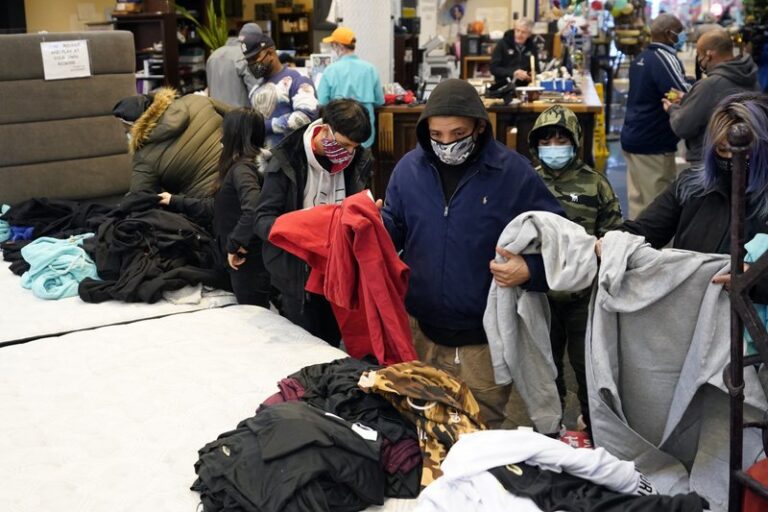
(AP) — Ashley Archer, a pregnant, 33-year-old Texas financial adviser, and her husband have been cautious about the coronavirus. They work from home, go out mostly just to get groceries and wear masks whenever they are in public.
But when a friend lost power amid the winter storms that have left millions of Texans without heat in freezing temperatures, the couple had to make a decision: Should they take on additional risk to help someone in need?
Archer said they didn’t hesitate. They took her husband’s best friend into their suburban Dallas home.
“He’s like family,” she said. “We weren’t going to let him freeze at his place. We figured, ‘OK, we’re willing to accept a little bit of risk because you’re not in our little pandemic group.’”
Weighing the risks in the pandemic era is fraught enough. But the storms and outages that have hit a big swath of the U.S. over the past several days have added a whole new layer of complexity.
Do we open doors to the neighbors? Should we stay in a hotel or go to a shelter? And what to do about hand-washing, the most basic of precautions, when there is no running water?
The last few months have been challenging enough for Jonathan Callahan. He lost his job cleaning mail trucks in Jackson, Mississippi, and soon found himself homeless, sleeping in an abandoned church at night. Then the storm hit Mississippi this week, bringing bouts of snow and freezing cold.
Callahan, 40, was one of 14 people staying at a warming shelter at a community center in Jackson, with cots spread around the gym. He said the space has been comfortable, meals have been provided, and he and some others played a game of pickup basketball, which “warmed us right up.”
He said he felt comfortable with the coronavirus precautions; he and most everyone else were wearing masks and there was room for distancing.
“I’m grateful they let us be here,” he said. “If we weren’t here, where would we be?”
Public health experts say that crowding people into shelters can contribute to the spread of COVID-19, but that there are ways to lower the risks, through masks and distancing.
“The ethics of the situation are simple enough,” said Dr. Stefan Kertesz, a University of Alabama at Birmingham professor of medicine and a homeless health researcher who runs a clinic for homeless veterans. “We can’t protect people tomorrow if they die today. Warming stations are needed.”
The storms that have disrupted social distancing precautions and thrown people from different households together have also undermined the nation’s vaccination drive, with tens of thousands of vaccine doses stranded and inoculations canceled. Concern is mounting in some places.






